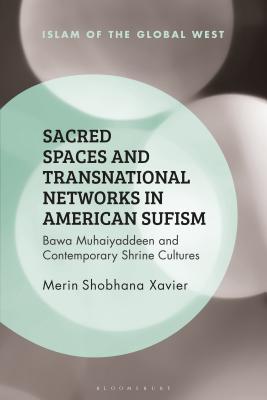-

A note on book covers: while we do our best to ensure the accuracy of cover images, ISBNs may at times be reused for different editions of the same title which may hence appear as a different cover.
Sacred Spaces And Transnational Networks In American Sufism: Bawa Muhaiyaddeen And Contemporary Shrine Cultures
Sacred Spaces And Transnational Networks In American Sufism: Bawa Muhaiyaddeen And Contemporary Shrine Cultures
Couldn't load pickup availability
Through ethnographic research, Sacred Spaces and Transnational Networks in American Sufism shows that the followers of Bawa in the United States and Sri Lanka share far more similarities in the relationships they formed with spaces, Bawa, and Sufism, than differences. This challenges the accepted conceptualization of Sufism in North America as having a distinct “Americanness”, and prompts scholars to re-consider how Sufism is developing in the modern American landscape, as well as globally.
The book focuses on the transnational spaces and ritual activities of Bawa's communities, mapping parallel shrines and pilgrimages. It examines the roles of culture, religion, and gender and their impact on ritual embodiment, drawing attention to the global range of a Sufi community through engagement with its distinct Muslim, Hindu, Jewish, and Christian followers.
Details of Book
A note on book covers: while we do our best to ensure the accuracy of cover images, ISBNs may at times be reused for different editions of the same title which may hence appear as a different cover.

-
One Line Summary
Explores transnational Sufi communities and shared spiritual spaces.
-
Who is this book for?
This book offers a fascinating glimpse into how Sufism thrives across borders, emphasizing the unity and shared rituals of Bawa Muhaiyaddeen's followers from diverse backgrounds. If you're interested in religious studies, cultural intersections, or spiritual community building, you'll find its ethnographic insights both enriching and thought-provoking. It’s a rare look at how faith communities create meaningful connections beyond national identities.

